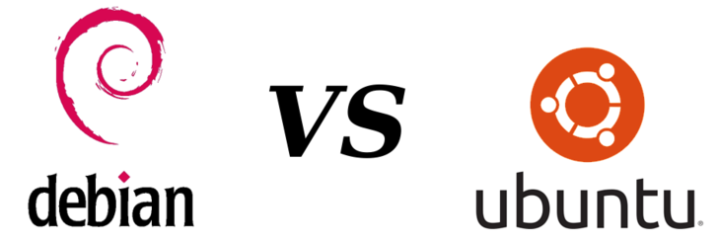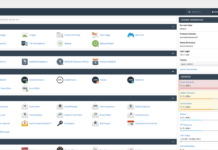Will the battle for the best Linux distro ever have a definite finale? Well, every Linux distribution has its own advantages and disadvantages. However, of all the Linux distributions being used by different server managers, programmers, and other IT admins, Ubuntu and Debian are the most popular and most-used distros. Here, we will clearly compare these two popular distros – stating their PROs and CONs – so you can easily point out which is best for your need. It’s going to be a pretty long read, but concise and straight to the point.
Debian Distro
Debian was first released in 1993 as a free and open-source operating system. This Linux distribution is one of the oldest and also the favorite for many Linux admins. It is versatile and can be run on various devices, including laptop computers, desktop computers, server systems, etc. As an operating system, Debian is more stable than Ubuntu; however, it is not that easy for a beginner to understand.
Advantages (Pros) Of Debian GNU
- Debian is more stable than many other (if not all) Linux distributions, all thanks to the devoted Debian Project community.
- Unlike other distros, the Debian Linux distro is completely community-driven. It is developed and maintained by various professional programmers and developers from around the world.
- The Debian OS has multiple installer options for end-users. Novices/beginners can install Debian via the Live CD package, while experienced users can use the full-featured installer.
- Debian is more secure and versatile than Ubuntu.
- Of all Linux distributions, Debian has more and supports more hardware architectures. Typically each Debian release supports up to nine hardware architectures, from amd64 (64-bit Intel) to arm64 and PowerPC, and other unofficial architectures.
- No version of Debian requires you to pay before you can access and use it – Debian is completely free, secure, and stable.
- Apparently, Debian has one of the biggest software repositories than any other Linux distro.
Disadvantages (Cons) of Debian GNU
- Debian is not beginner-friendly. That is to say; it is difficult for beginners to work with Debian for their project.
- The release cycle is not as straightforward as that of Ubuntu. While Ubuntu releases new versions every six months, Debian releases its versions randomly.
- Debian does not have PPA’s
Ubuntu Distro
Compared with Debian, Ubuntu is a relatively new Linux distro. It was first released in 2004, and it is based on Debian. The Ubuntu Linux distro comprises free and open-source software, having three official editions: Desktop, Server, and Core for IoT and robots. Ubuntu editions can run on virtual machines or a typical computer system. More interestingly, Ubuntu is in many ways similar to Debian, and it is beginner-friendly.
Advantages (Pros) of Ubuntu Linux
- Ubuntu is beginner-friendly; It is practically the best Linux distribution for newcomers trying to familiarize themselves with Linux.
- This Linux distro is highly customizable and can be run on various devices, including virtual machines and IoT devices.
- Updates to this Linux distro are released regularly following a known release cycle, unlike Debian that’s released randomly.
- Ubuntu can run seamlessly of even low-specced systems; its minimum requirement is at least 700MHz processor, 512MB RAM, and 5GB storage.
- Updating Ubuntu is straightforward and seamless, especially the LTS versions.
- This distro serves as a free OS for personal and enterprise computing
- Apparently, the package management of the Ubuntu Linux distro is outstanding and almost second to none.
Disadvantages (Cons) of Ubuntu Linux
- Ubuntu is not entirely community-driven; sometimes, developers are hired to work on the OS.
- Because Ubuntu is released regularly within a short period, it is not rigorously tested as Debian, and thus, it is not as stable as Debian.
- Ubuntu software repositories provide both Free and proprietary software, which means that Ubuntu is not entirely free as Debian.
The Comparison: Debian vs. Ubuntu

To make this comparison much clearer, let’s make use of a table. There are quite major differences between the Debian Linux distro and the Ubuntu Linux distro.
| Feature | Debian | Ubuntu |
| Download | https://www.debian.org/distrib | https://ubuntu.com/download |
| Developers | The Debian Community | The Canonical Company |
| Initial Release: | September 1993 | October 2004 |
| Base | Original Linux | Debian based |
| Software Type: | Free Only | Free & proprietary |
| Best For | Advanced users (professionals) | Beginners |
| Hardware Compatibility: | Vast | Supports more devices and platforms |
| LTS Support | 5 years | 5 years |
| PPA | Not supported | Supported |
| Release Cycle: | Irregular | Steady: 6-month interval |
| What’s Special | Rock-stable | Frequent/regular updates |
| Security | Very secure | Less secure |
The major differences between Debian and Ubuntu are compared in the table above. Yes, both distros tend to have the same LTS support duration, and they also have a lot more similarities. For example, both Debian and Ubuntu are based on the same architecture. Why? Because Ubuntu is based on Debian.
Another thing to note is that both Debian and Ubuntu use GNOME as their default desktop environment. However, the user can still launch other desktop environments on either of the distributions. For Debian, other desktop environments you could use include KDE Plasma, Cinnamon, Xfce, MATE, LXDE, and more. While for Ubuntu, there is Kubuntu for KDE, Xubuntu for Xfce, Lubuntu for LXDE, Ubuntu MATE, and more.
What More?
While these two Linux distros differ in many ways, they are pretty unique, and depending on your project; you may need to use either of the two. Apparently, it is tough to say that Ubuntu is generally better than Debian or vice versa. Regardless, with the points (pros and cons) mentioned in this post, you can easily point out the one that is best for your next project.
Furthermore, it is imperative to say that Debian and Ubuntu aren’t the only good Linux distros available to everyone. There are lots of other good Linux distros, including Arch Linux, Nitrux, Kodachi, and many more. That said, you may need to compare either Debian or Ubuntu with other distributions to conclude on which is best for your upcoming or ongoing projects.

















